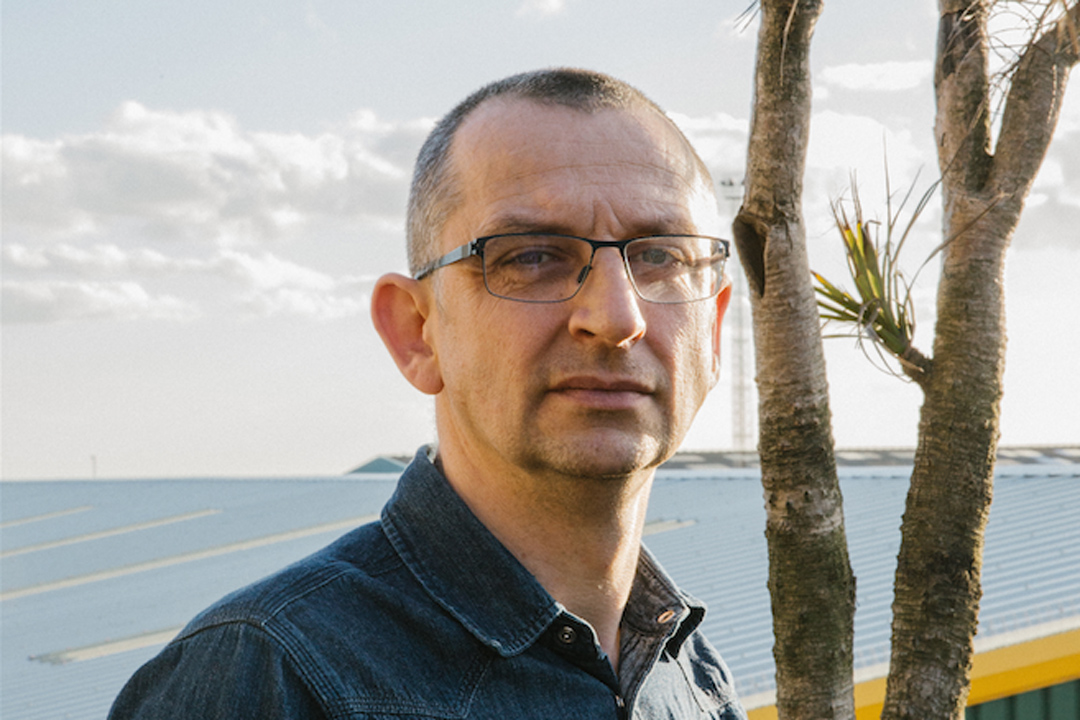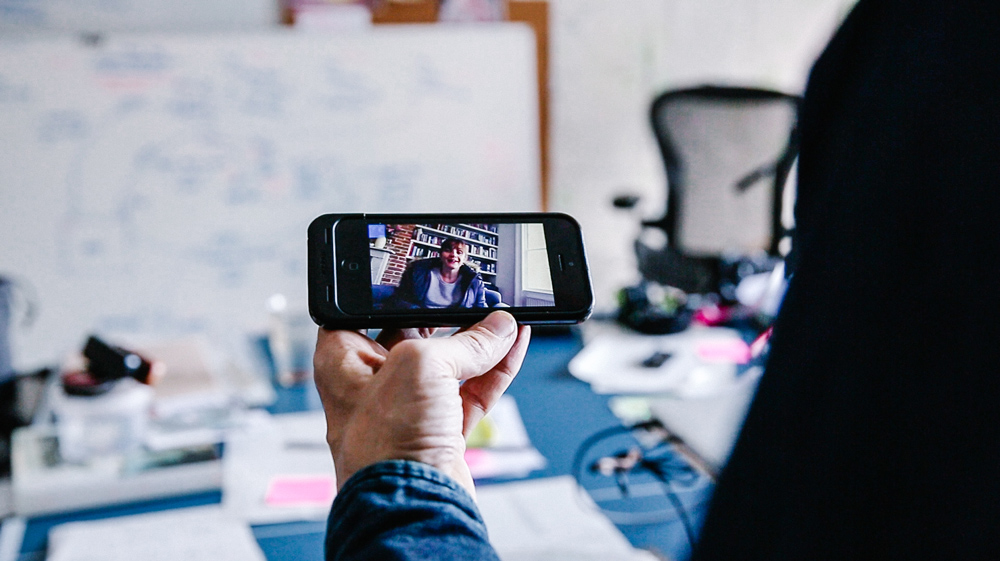Blast Theory
We meet Matt Adams, co-founder of the multi-disciplinary art collective behind Karen


We meet Matt Adams, co-founder of the multi-disciplinary art collective behind Karen
Long before Spike Jonze’s sci-fi drama Her graced our screens, with its story of a man falling victim to the charms of artificial intelligence, Portslade-based art collective Blast Theory were working on an interactive life-coaching app called Karen. It's purpose is not too dissimilar in sentiment to Jonze’s Samantha. Once you download the app onto your phone, Karen begins to ask you some questions about your outlook on the world to get an understanding of you. Then things get a little more personal.
“What we’re trying to achieve with Karen is to make a project that reflects our ambivalence as individuals, and as a society, towards the systems of tracking and personalisation,” says Matt Adams, one-third of Blast Theory’s original collective, which has created projects for Basel Art Fair, Sónar Festival in Barcelona and exhibited at the Chicago Museum of Contemporary Art. “We’re all quite in love with systems that know who we are and give us exactly what we want. We recognise that there's a price to be paid and we’re unsure whether the deal is one that we really should or shouldn’t be signing up to.”
Karen's questions are drawn from psychological profiling questionnaires. She (the software) is profiling you and she gives you advice based on your answers. Over the first week you have calls with Karen once or twice a day but before long she becomes very friendly and wants to talk more often, to the extent that she get’s hurt if you don’t call her. It’s up to you how open you are and how you manage her inquisitive behaviour. As the experience unfolds, Karen gets more and more curious. She seems to know things about you that she shouldn’t. “What’s really interesting is when you see Karen, it’s a woman in her late thirties early forties living with a flatmate in England,” says Adams. "It looks and feels really humdrum. The sinister monitoring is going on in the background and that’s what’s really striking about the large companies that are doing this stuff; it’s not sold as some sort of big science-fictional thing, it’s sold as big, warm, friendly and down to earth.” We are profiling you, and we are using your data to adapt an experience to you, whilst trying to shine a light on what’s going on in some of the more insidious areas of data collection

Since the nineties, Blast Theory have been working with scientists from the University of Nottingham to create intellectually and emotionally challenging experiences that straddle the art, theatre and gaming worlds. Desert Rain and Can You See Me Now? are but two of Blast Theory's many collaborations with the university, both fusing real and virtual worlds. Adams and co-founders Ju Row Farr and Nick Tandavanitj have also co-authored over 40 research papers with academics from the university. For Karen, the team worked closely with Dr Kelly Page, a researcher in Chicago, fascinated and alarmed in equal measure by the implications of web tracking. Her insight into the dynamics of psychological, personality and behavioural profiling laid the foundations for the app.
As part of the development process the team looked at 50 different personality tests noting what was interesting or compelling in some way. The five factor model, which measures for openness, conscientiousness, extroversion, agreeableness and eroticism became the framework. The team then incorporated elements that are not as robust as they would be in a full personality testing situation, but are still particularly significant. Based on your responses, those questions are then laced into your interactions with Karen.
“We are profiling you, and we're using your data to adapt an experience to you, whilst trying to shine a light on what’s going on in some of the more insidious areas of data collection,” explains Adams. As the story finishes, you are offered a personalised report based on your data. Your report shows how you behaved and how the decisions you made affected Karen. You can then compare yourself with other players and see how the science of psychological profiling underpins the story.
Aside from Blast Theory’s clear fascination with profiling and personalisation – last year they brought together 40 artists and researchers to discuss the subject – Karen was created in response to a lack of innovation in the app world. “I am struck that there aren’t more great artistic projects that are apps in my view,” says Adams. We really hope that we can move things forward in that respect. Our aim is to reach an audience we wouldn’t otherwise be able to reach.” It's easy to have reservations about tracking and profiling. If corporations aren't secretly selling your data, the concept still feels very much in keeping with an Orwellian future. However, from a positive aspect, or a creative standpoint, we've only just scratched the surface of data-driven personalised experiences - the potential is difficult to comprehend.
“I would hope that Karen shows a new way to create interactive, cinematic experiences,” says Adams. “I think there’s a real opportunity there to create new kinds of work and in ten or twenty years’ time I can see people making interactive experiences like that as a matter of course. To me it doesn’t seem farfetched at all.”
Karen will be available to download from the App Store on the 15th April.
http://www.blasttheory.co.uk/


